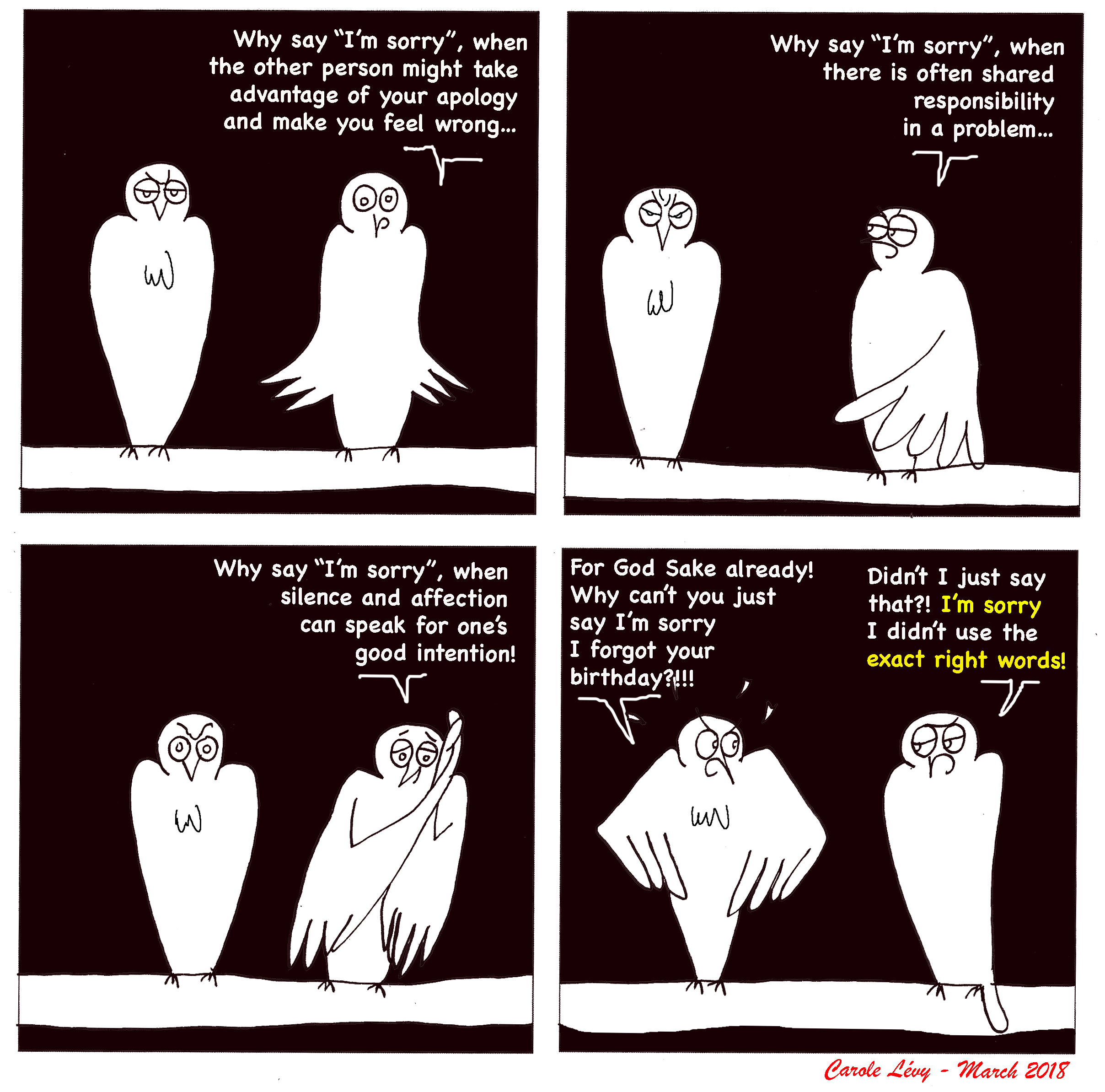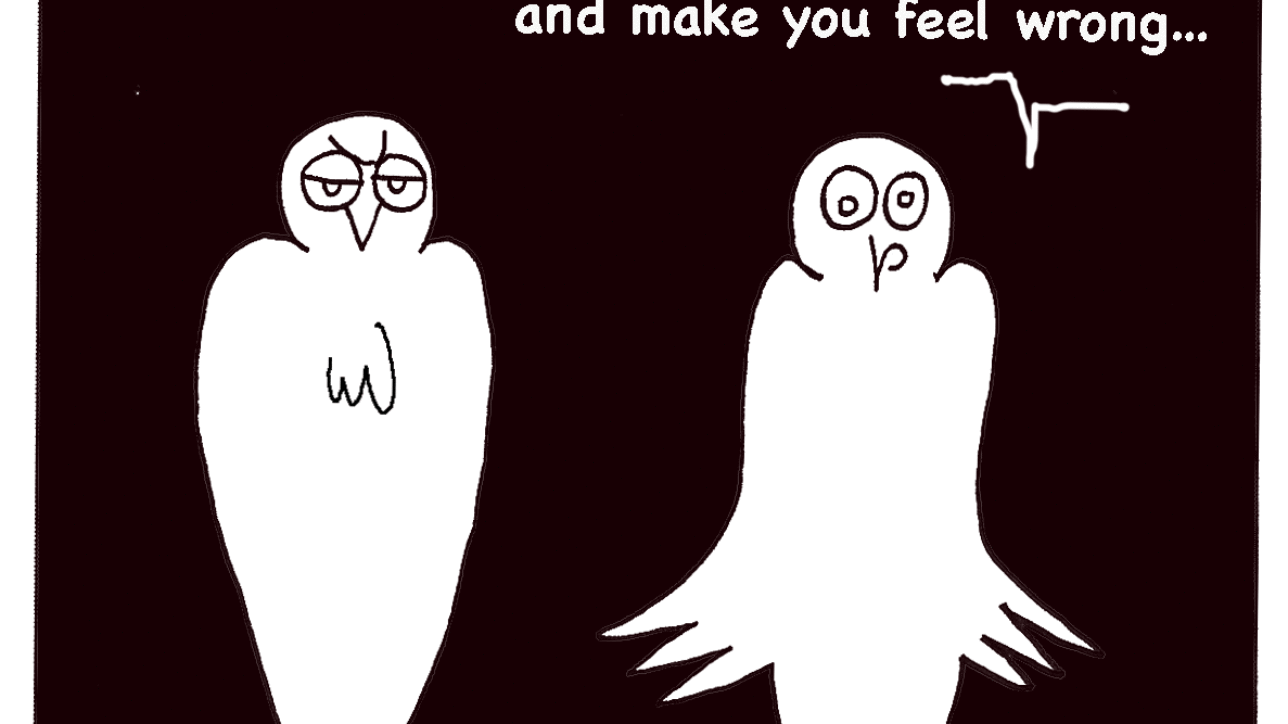
From time to time, it is useful to remember the basics of being in relationships with others.
Yes, I believe that saying I’m sorry is important to maintain -or establish- healthy relationships.
Of course, we can say it without meaning it. We can say it and be angry at the other person. We can say it out of obligation and to get rid of it. We can say it and feel sorry for ourselves. Or we can say it and trigger more problems!
Did I just succeed in not saying I’m sorry?! See, it’s easy to avoid.
We can also believe that we did nothing wrong. That the other person is unreasonable in his/her expectations; that it’s weak to apologize; or that we’ll be defeated by our own regret, if we apologize.
Although we don’t need to use the exact right words when we communicate something vulnerable for us, a simple heartfelt I’m sorry is often the opening to an honest and reciprocal conversation.
Ideally, we want to be so in-tune with ourselves – so self-aware of our habitual pattern of behaviors and their impact on others- that it’s a “no-brainer” to say I’m sorry I acted this way, and it’s not what I wanted to do. Or I’m sorry, I acted this way and you obviously feel upset.
Because no matter what we did – no matter what is the relational dynamic we are stuck in- there is probably somebody suffering in front of us.
And it is well worth it to feel sorry for another human being’s pain and express our compassion.
Reflective questions: Do you say I’m sorry – not enough or too much? In general, do you appropriately apologize?








While I agree with the empathetic aspect of your point, I feel more comfortable using the phrase, “I regret that…” Too often the term sorry is used in the context of “I’m so sorry, I didn’t mean to do that…” The word regret tends to acknowledge that, yes, I am the kind of person who does that thing, and I regret that this is so. Regret helps me own my behaviour while I have used sorry too often to try and minimize the impact of my regrettable behaviour. Keeping the impact intact helps me remember for the next time how I felt in my regret.
Thanks for your comment Ian! (And “sorry” for my late reply – I didn’t receive a notification!) I love your suggestion to use “I regret” as a thoughtful and deliberate way to own what we don’t want anymore.